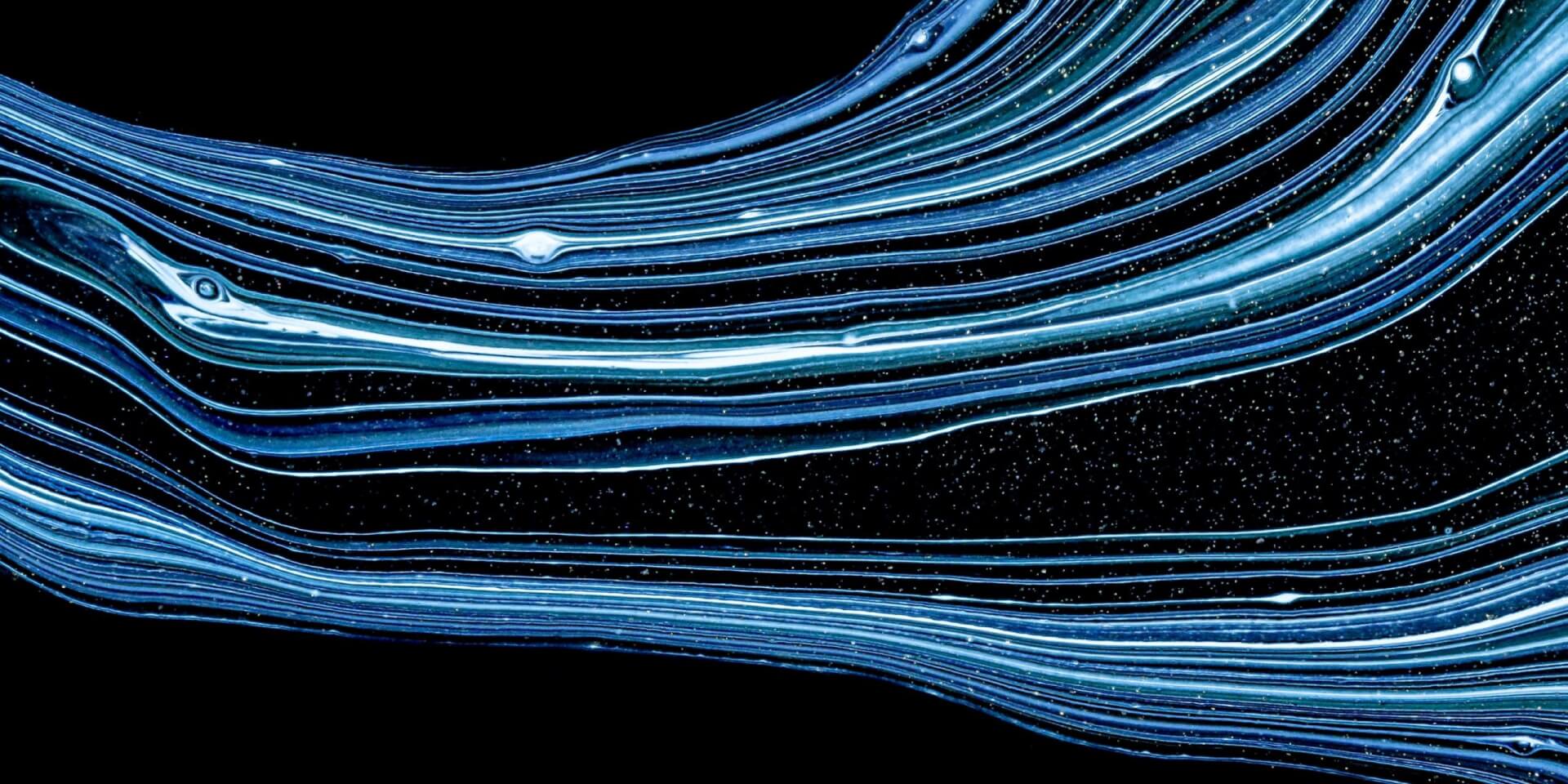As we hit the year's midpoint, we actively stay updated with the rapidly advancing open science landscape. In this edition, Moumita Koley captures the pivotal events, opportunities, and readings from the previous month. Concurrently, Ismael Rafols brings our focus to a vital but often neglected facet of open science - promoting activities that strengthen citizen involvement.
Envisioning Open Science as a Collective Experience: My dream of Open Science is one of knowledge springing and flowing like water in a lush and biodiverse forest: water is everywhere in the forest, not just flowing in the streams and rivers but also within the myriads of species that make the forest. If you follow this metaphor, this means that Open Science is not only about access to external scientific information but about knowledge as a lived and collective experience: about citizens actively deciding what type of knowledge is needed, participating in its creation, and benefiting from it.
Perhaps 100 years ago, one could be forgiven for thinking that access to knowledge could be enough to support human development. But in the last decades, we have learned that technology tends to respond to the needs of its creators. Therefore, for science to have a wide distribution of benefits, it is necessary to have a wide societal influence on science – on what issues are studied and how they are studied and assessed.
This is why the UNESCO Recommendation of Open Science explicitly placed ‘engagement of societal actors’ and ‘dialogue with other knowledge systems’ as pillars of Open Science. Passive open science is not enough to foster a more equitable distribution of the benefits of scientific progress.
The implication of this broader understanding of Open Science is the need to rebalance policy initiatives and investments in Open Science from the current focus on outputs (e.g., Open Access publications) and infrastructure towards supporting activities closer to citizens. These might include, for example, activities such as stakeholder participation in priority setting on environmental issues, patient engagement in health research, or exchanges with indigenous knowledge in forestry management. It is through these engagements with diverse stakeholders that science may serve the plural aspirations and needs of humankind.
Big stories in Open Science
G7 Science Ministers Prioritize Open Science
- G7 Science and Technology Ministers met in Japan from 12 to 14 May 2023. The joint declaration from the meeting highlighted the importance of Open Science, emphasizing three key priorities: advancing open science infrastructures, reforming research evaluation practices, and conducting research on research to shape evidence-based science policies. The other related issues featured in G7’s agenda are academic freedom, inclusivity, research protection, scientific integrity, and international collaboration.
Council Calls for Open Access and Reform in Scholarly Publishing Practices
- The Council of the European Union adopted conclusions on ‘high quality, transparent, open, trustworthy and equitable scholarly publishing,’ emphasizing the need for a not-for-profit, open access, and multi-format publishing model with no costs for authors or readers. Additionally, it encouraged national open-access policies and support initiatives like Open Research Europe and the use of open-source software. It highlighted the need for training researchers in peer-review skills and intellectual property rights.
Invest in Open Infrastructure receives $1M from the Mellon Foundation to scale the COIs
- Invest in Open Infrastructure has received a $1M grant from the Mellon Foundation to build a Catalog of Open Infrastructure Services (COIs) and test critical models to sustain open infrastructure. The grant will support the further development and productization of the COIs and the testing of critical models and strategies to widen the pool of investors in open infrastructure.
Science Europe Conference on Open Science: Insights and Highlights
- Science Europe hosted a two-day conference on open science in October 2022 in Brussels, Belgium, and online. This event brought together close to 600 participants, including 36 expert speakers, to discuss open science and its role in Europe and the global research landscape. The conference highlighted the importance of Open Science, while uneven implementation of open science initiatives emerged as the primary concern.
EU to Support Open Access without Author Fees
- The European Union (EU) has taken a significant step towards making open access to journal articles from publicly funded research the norm. In a recent draft, the EU has provisionally agreed to support non-profit scholarly publishing models that do not charge the authors any fees. The Council of the EU member state governments is set to adopt the position later in May, following a technical agreement. This decision has the potential to greatly affect commercial scholarly publishing, as it encourages researchers to adopt alternative publishing models and avoid any delays caused by embargoes.
French National Open Science Fund (FNSO) Reaffirms Commitment to Global Open Science Infrastructure
Six Years of Wellcome Open Research: A Strong Presence in Open Access Publishing
- Wellcome Open Research celebrated its six-year milestone as a prominent platform supporting Wellcome-funded researchers in transparent and open publishing practices. The platform has witnessed significant growth, with a rise in published papers from 121 in 2017 to 363 in 2021 and 315 in 2022. This trend reflects the increasing global recognition and acceptance of open-access publishing, demonstrated by a substantial 81% increase in gold open-access articles worldwide between 2017 and 2022.
UK Universities Sign Three-Year Open Access Deal with Springer Nature
- UK universities have struck a new three-year deal with Springer Nature for more than 2,500 titles, led by Jisc. The agreement, which includes Nature, and the Nature research journals, will help reduce costs and accelerate immediate open access. The deal meets the requirements of researchers and their institutions to comply with research funders’ open access mandates and save costs. However, high costs and limited transparency in Springer Nature’s article processing charges raised concerns among the stakeholders.
Misleading Affiliation Practices Boost Saudi Universities’ Rankings, Reveals Research Report
- A recent report by SIRIS Academic has uncovered a concerning trend among highly cited researchers (HCRs) who have changed their primary affiliations to Saudi universities to enhance their global rankings. Despite being guest researchers or research fellows, these HCRs have listed Saudi universities as their primary affiliation, leading to an inflated standing in university rankings that consider researchers’ citation impacts. The report highlights the need for increased scrutiny and integrity in evaluating research institutions and urges reevaluating the reliance on rankings to assess institutional performance.
Dutch Court Supports University’s Revocation of Ph.D. Degree in Misconduct Case
- A recent Dutch court ruling has upheld Wageningen University’s decision to revoke a Ph.D. degree on the ground of data manipulation. The case involved a student whose research findings were found to be irreproducible by fellow researchers. The court’s decision highlights the university’s authority to withdraw degrees due to misconduct, setting a precedent for similar cases in the future. In a parallel development, a Japanese university has decided to revoke the doctoral degree of a former student who was found to have engaged in image and graph manipulation in the dissertation and two published papers.
Canadian Commission for UNESCO Announces Appointment of First UNESCO Chair in Open Science
- Vincent Larivière has been appointed the first UNESCO Chair in Open Science by the Canadian Commission for UNESCO. The Chair’s research, conducted in collaboration with international partners, will focus on advancing the understanding of open science and its impact on scientific knowledge dissemination.
WHO Unveils Revolutionary Open-Access Health Data Platform: Bridging Global Health Data Gaps
- To bridge global health data gaps, the World Health Organization (WHO) has launched a revolutionary digital platform, data.who.int. This all-inclusive platform offers open access to WHO’s health data, enhancing transparency and usability with innovative visualizations and metadata. The portal is designed to serve as the ultimate public health data resource, featuring data in all six official UN languages, following local formatting norms, and prioritizing accessibility for users, including those with visual, motor, and cognitive impairments.
Open Science events and opportunities
- Register to join the White House Listening Session on “Open Science Possibilities for Training and Capacity Building: Perspectives from the Early Career Researcher”-Supporting Community on 12 June 2023 at 13:00 ET.
- The European Network for Catalysing Open Resources in Education (ENCORE+) is organizing a virtual event entitled “OER as a Catalyst for Innovation in Higher Education” on 15 June 2023 at 14:00 CEST. Register.
- CRAFT-OA is organizing a webinar in collaboration with two other HORIZON Europe-funded projects: DIAMAS and PALOMERA on 20 June 2023 at 13:00 CEST. Participants will have the chance to engage with the three projects and their vision for community-driven open scholarly publishing. Register.
- The OSSci Reproducible Science Interest Group is set to launch in June. This interest group will share resources, identify pain points, and develop and implement possible solutions together. Interested? Submit the OSSci Interest Group Application form.
- The inaugural IEEE Symposium on Open-Source Science (OSS) –6 July 2023 in Chicago, IL (as part of IEEE Services)– will showcase the impact of open-source technology on scientific advancements. Submissions are now open for the inaugural IEEE OSS Awards and the OSS Expo.
- In celebration of the 2023 Year of Open Science, NASA and CERN are hosting an event entitled “Accelerating the Adoption of Open Science” from 10-14 July 2023 at CERN in Geneva, Switzerland. Apply for remote participation
- 27th International Conference on Science, Technology and Innovation Indicators (STI 2023) will be held 27-29 September 2023 in Leiden. CWTS will organize the conference in collaboration with the ENID in-hybrid mode. The 2023 edition focuses on improving scholarly evaluation practices in light of cultural change.
- The Global Summit on Diamond Open Access will take place from 23 to 27 October 2023 in Toluca (Mexico) and is jointly organized by Redalyc, UAEMéx, AmeliCA, UNESCO, CLACSO, UÓR, ANR, cOAlition S, OPERAS and Science Europe. Register.
- The Information and Library Network Centre, Gandhinagar, Gujarat, India, is organizing the 26th International Symposium on Electronic Theses and Dissertations, ETD 2023, during 26-28 October 2023. Submit your proposals for papers.
Job opportunities
Our top ten Open Science reads
- From Declaration to Global Initiative: a decade of DORA
- Scientific Research is Deteriorating
- OA’s Teetering House of Cards
- Is Science Too Slow to Change the World?
- Too greedy’: Mass Walkout at Global Science Journal Over ‘Unethical’ Fees
- Data With Principles: How to be FAIR, and Why You Should CARE
- Open Science: A Practical Guide for Early-Career Researchers
- Smart Alone, Brilliant Together
- (Not-)for-Profit in Research
- Drawing Lines to Cross Them: How Publishers are Moving Beyond Established Norms
Image by Solen Feyissa on Unsplash.

